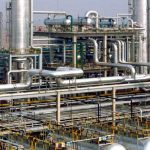ABUJA – In a significant move for Nigeria’s petroleum sector, Dangote Refinery and Petrochemicals announced an amicable resolution with the Nigerian National Petroleum Company Limited (NNPCL) regarding contested import licenses granted by the Nigeria Midstream and Downstream Petroleum Regulatory Authority (NMDPRA).
The refinery had initiated legal proceedings in the Federal High Court in Abuja, seeking to nullify the import licenses issued to NNPCL and six other companies, claiming that these licenses were unnecessary given the refinery’s capacity to meet domestic demand. Dangote also sought N100 billion in damages from NNPCL, arguing that the licenses hindered its operations and contravened industry regulations.
In a statement released recently, Anthony Chiejine, Dangote’s Group Chief Branding and Communications Officer, expressed optimism about reaching a settlement. “This issue has been on our radar since June, and we are pleased to report that discussions have progressed well since President Bola Tinubu’s directive on crude oil and refined product sales in naira,” Chiejine noted. He added that no court processes have been initiated, indicating a mutual understanding to pause legal proceedings, with plans to formally withdraw the case during the next court session scheduled for January 2025.
The lawsuit, filed under the reference FHC/ABJ/CS/1324/2024, questioned the legality of the licenses issued to NNPCL and other defendants, including AYM Shafa Limited and Matrix Petroleum Services Limited. Dangote argued that these licenses were granted despite the refinery’s ability to produce more than enough refined petroleum to meet Nigeria’s current daily consumption.
Additionally, the refinery sought a court order to prevent the NMDPRA from issuing further import licenses to the defendants, emphasizing that the ongoing issuance of these licenses negatively impacts its business operations. The case reflects broader concerns about the promotion of local refineries in Nigeria, highlighting the ongoing struggle for indigenous companies to compete against international oil interests.
In its court filings, Dangote alleged that NMDPRA’s actions violate statutory obligations set forth in the Petroleum Industry Act, which mandates support for local refining capabilities to address Nigeria’s energy crisis effectively. The refinery has invested billions of dollars in building its capacity, and the lawsuit underscores the urgent need for regulatory frameworks that support domestic production over imports.
As discussions for a settlement continue, this case serves as a pivotal moment for Nigeria’s refining industry, emphasizing the importance of fostering local capacity to achieve energy independence and sustainability. Legal representatives for both sides indicated a willingness to resolve the matter amicably, and the court has adjourned proceedings until January 20, 2025, for a status report on the settlement efforts.
This resolution not only marks a potential turning point for Dangote Refinery but also signals hope for other local players in the Nigerian oil and gas sector, illustrating the crucial balance between regulation and industry support.










